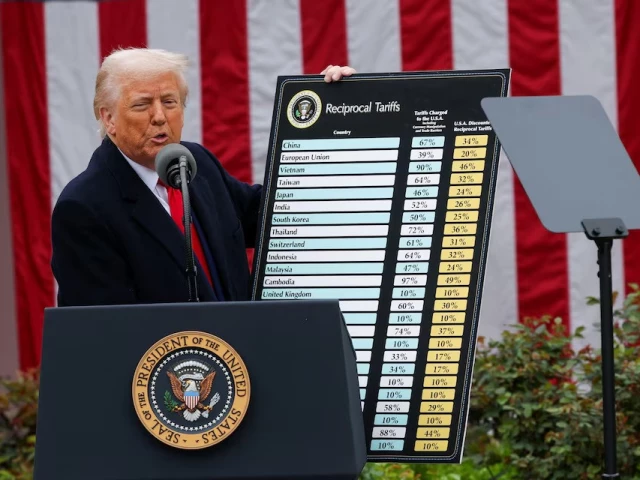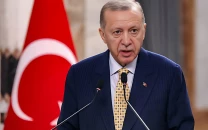Trump’s tariff logic under fire as cited economist distances himself
The economist said his work was taken out of context and applied incorrectly.

A leading US economist whose research was cited by the Trump administration to justify sweeping tariffs has said the White House got his calculations “very wrong” — and overstated the levies by a factor of four.
Brent Neiman, an economics professor at the University of Chicago and former Treasury official, co-authored a 2021 paper on import tariffs that the US Trade Representative (USTR) referenced in a public statement last week.
Brent Neiman responded with an op-ed in The New York Times on Monday, accusing the administration of misapplying the study.
“I disagree fundamentally with the government’s trade policy,” Neiman wrote. “But even taking it at face value, our findings suggest the calculated tariffs should be dramatically smaller — perhaps one-fourth as large.”
He also criticised the administration’s assumption that trade deficits equate to unfair foreign practices.
“The biggest mistake,” he wrote, “was treating bilateral trade deficits as proof of protectionism. That’s just wrong.”
Neiman said the study showed tariffs would likely raise domestic import prices nearly in line with the tariff rate, contradicting claims by the USTR that price impacts would be minimal.
The op-ed follows Trump’s announcement last week of a 10% baseline tariff on all imports, alongside higher duties targeting specific goods from major trading partners.
The USTR justified the move with a formula that excluded reciprocal tariffs and aimed to eliminate trade deficits country by country — an approach Neiman dismissed as “economically misguided.”
“Trade imbalances exist for many reasons,” he said. “They don’t prove unfair competition.”
Former Treasury Secretary Larry Summers also ridiculed the administration’s approach, comparing it to “creationism in biology” or “astrology in astronomy.”
The tariff announcement triggered turmoil in financial markets and unease among business leaders. Billionaire investor Bill Ackman warned the US was heading for a “self-induced, economic nuclear winter.”
While the White House has defended the plan as necessary to protect American manufacturing, opposition is growing — including from economists whose own work is now being used against them.








1725099588-0/BeFunky-(41)1725099588-0-208x130.webp)
















COMMENTS
Comments are moderated and generally will be posted if they are on-topic and not abusive.
For more information, please see our Comments FAQ